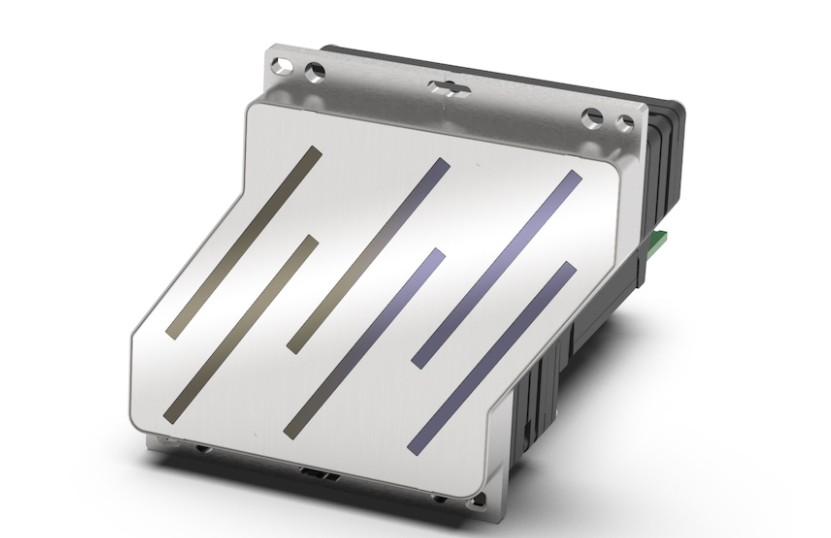This article was previously published on Printing and Manufacturing Journal.
Epson has introduced three new PrecisionCore printheads to cope with increased demand in commercial and industrial digital printing, including the D3000-A1R, the first Epson head to support ink recirculation past the back of the nozzle.

This is a significant advance that clearly indicates Epson’s determination to play in the industrial print market where full recirculation such as this is necessary to handle some of the more demanding fluids including those with higher pigment loading that are starting to appear in the packaging and textile sectors though it’s worth noting that Epson’s existing S-series heads do have some recirculation around the ink manifold.
Epson has achieved this by modifying an existing printhead from its LX10000 WorkForce printer, an A3 multi-function device aimed at the office market. Paddy O’Hara, business development manager for Epson Europe, explains: “We have taken a 600dpi head and taken away every other nozzle because you lose a nozzle to make the recirculation work.” The head is made up of six PrecisionCore chips with a total of 2952 nozzles, which deliver a 67mm print swathe.
It can produce 1200 npi resolution with a single colour but can also be configured for two colours, each with 600dpi resolution. This is a useful advantage over the Dimatix Samba, likely to be the main competition, as it allows printer vendors the option to create a basic entry level press at 600npi followed by a higher resolution version with next to no additional development work.
The D3000 has a firing frequency of 60khz, which at 1200 dpi should allow it to print at 75mpm. This speed can be pushed to 150mpm at 600dpi. O’Hara says that it’s a compact head so vendors could easily add a second row of heads to double the speeds, adding: “I believe that it will be cost-effective for the bigger printers.” The head itself measures 78.2 x 71.3 x 100.3 mm and has been shaped for easy alignment within a printbar.
It is a greyscale head though there are only three levels, one of which is zero. The native drop size is 3pl but it can also produce a larger 6pl drop at the same frequency. O’Hara notes: “We expect people to use that extra drop as an in-fill.”
It’s designed for water-based inks. The obvious target market is single pass packaging, including flexible films, followed by textiles, both for multi- and single-pass printers. Epson has already been working with some press vendors and we should see announcements from at least one of these in the not too distant future. In addition, it would be surprising if Epson did not look at this head for its own Monna Lisa textile printers.
It’s also worth noting that Epson sees the D3000 as the first in a series and is planning to introduce other versions with different drop sizes in the near-future, and possibly for other types of inks later. The company has already stated its intention to dominate the printhead market and the D3000 is a big step closer to that ambition.
Strangely, Epson has risked overshadowing the significance of the D3000 by announcing two further printheads alongside it. These are both variants of existing heads, targeted primarily at the textile market and supporting water-based inks only.
Thus the existing S3200-A3 can deliver a 9pl droplet- up from 6.5pl at the same 24kHz frequency in the existing A1 variant – giving a higher drop volume so that it can lay down more ink, as well as the ability to handle slightly higher viscosity inks. This can be set up with one colour at 600npi or two colours at 300npi each.
Equally, the I3200(8)-A1HD builds on the existing I3200(4)-A1 with extra ink channels so that it can print two colours at 1200 npi, four colours at 600npi and eight colours at 300npi, as well as some improvements to the electronics.
You can find more information from epson.com and we can expect to see further announcements shortly in terms of drive electronics from third parties as well as ultimately new presses.

